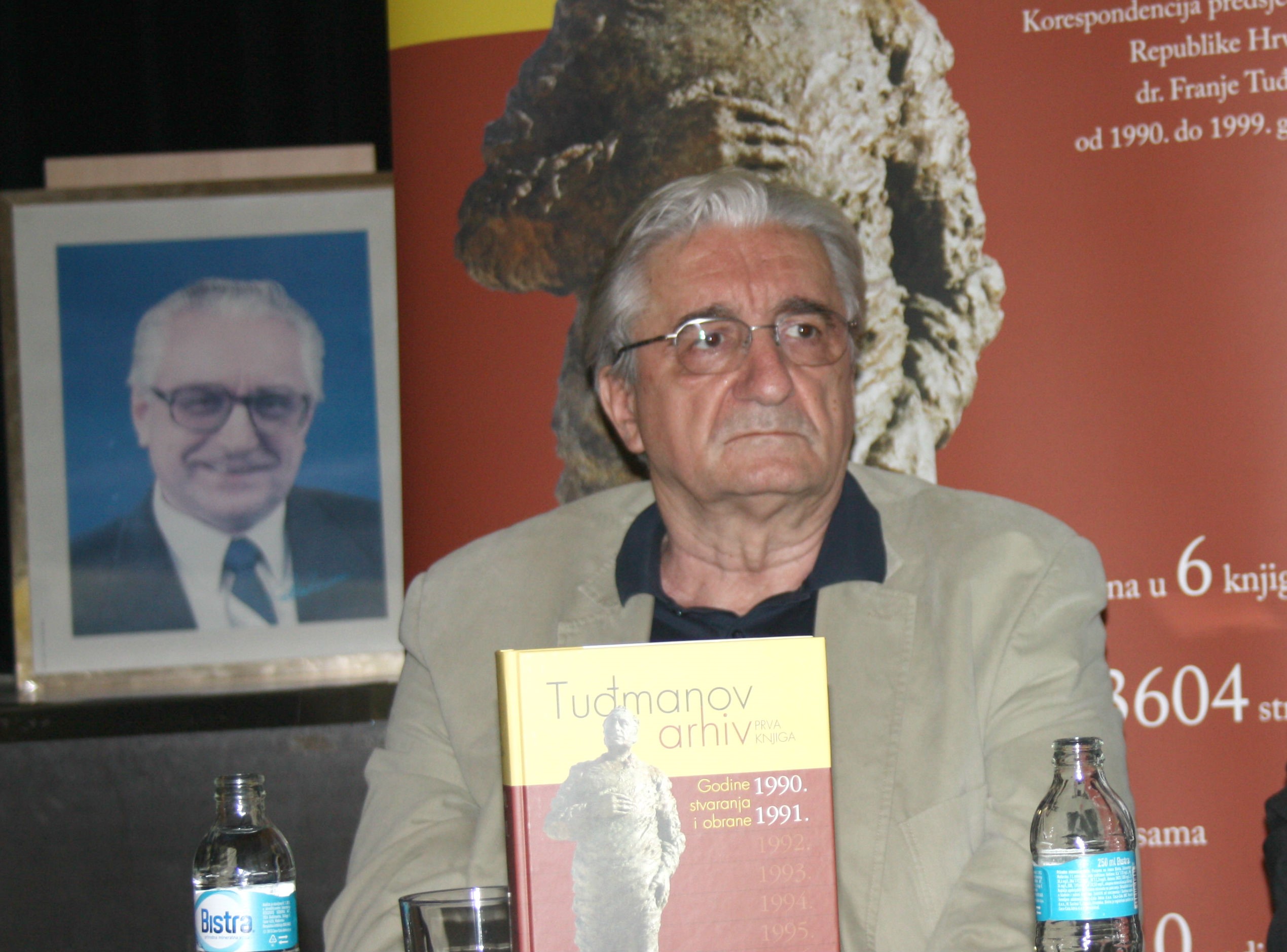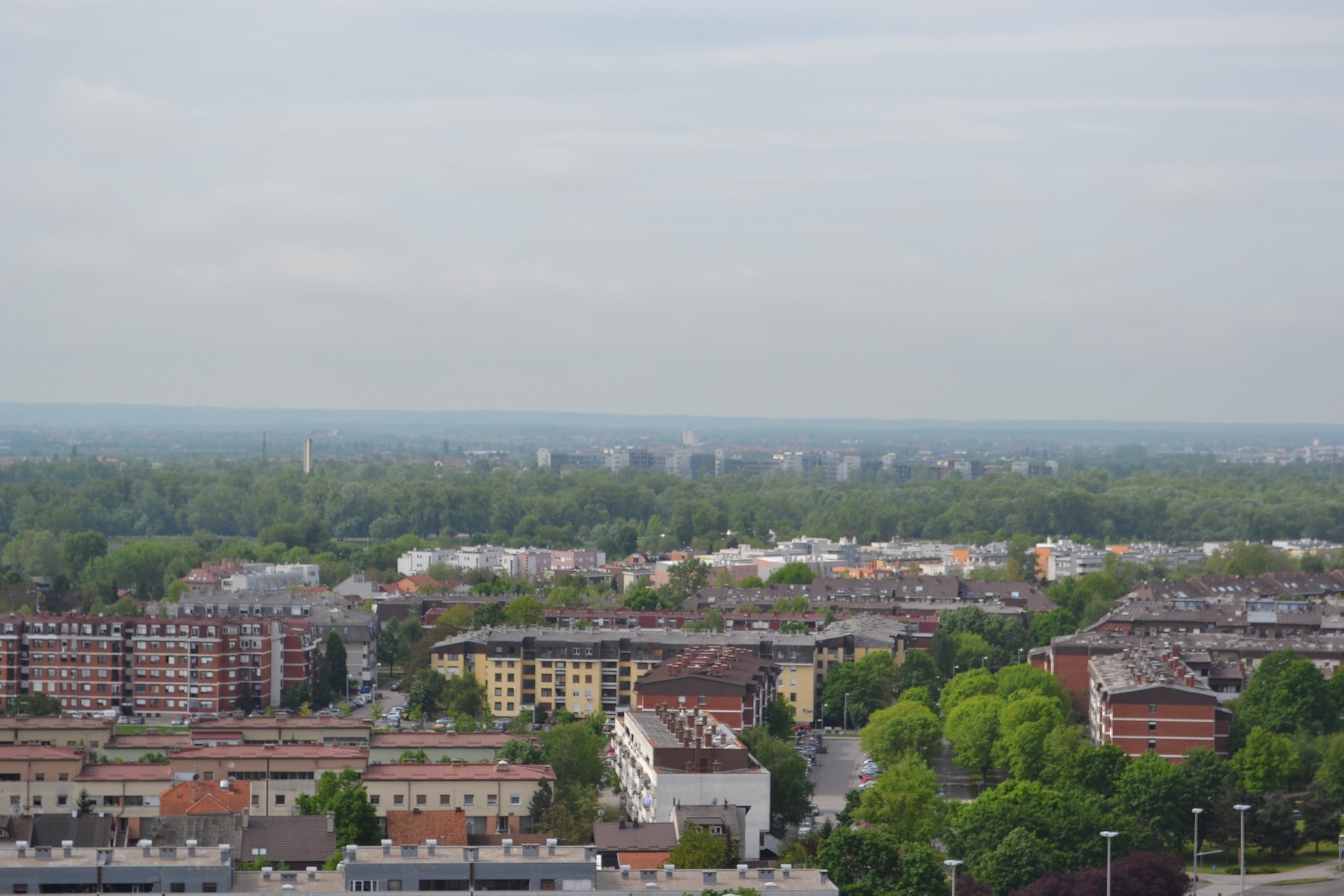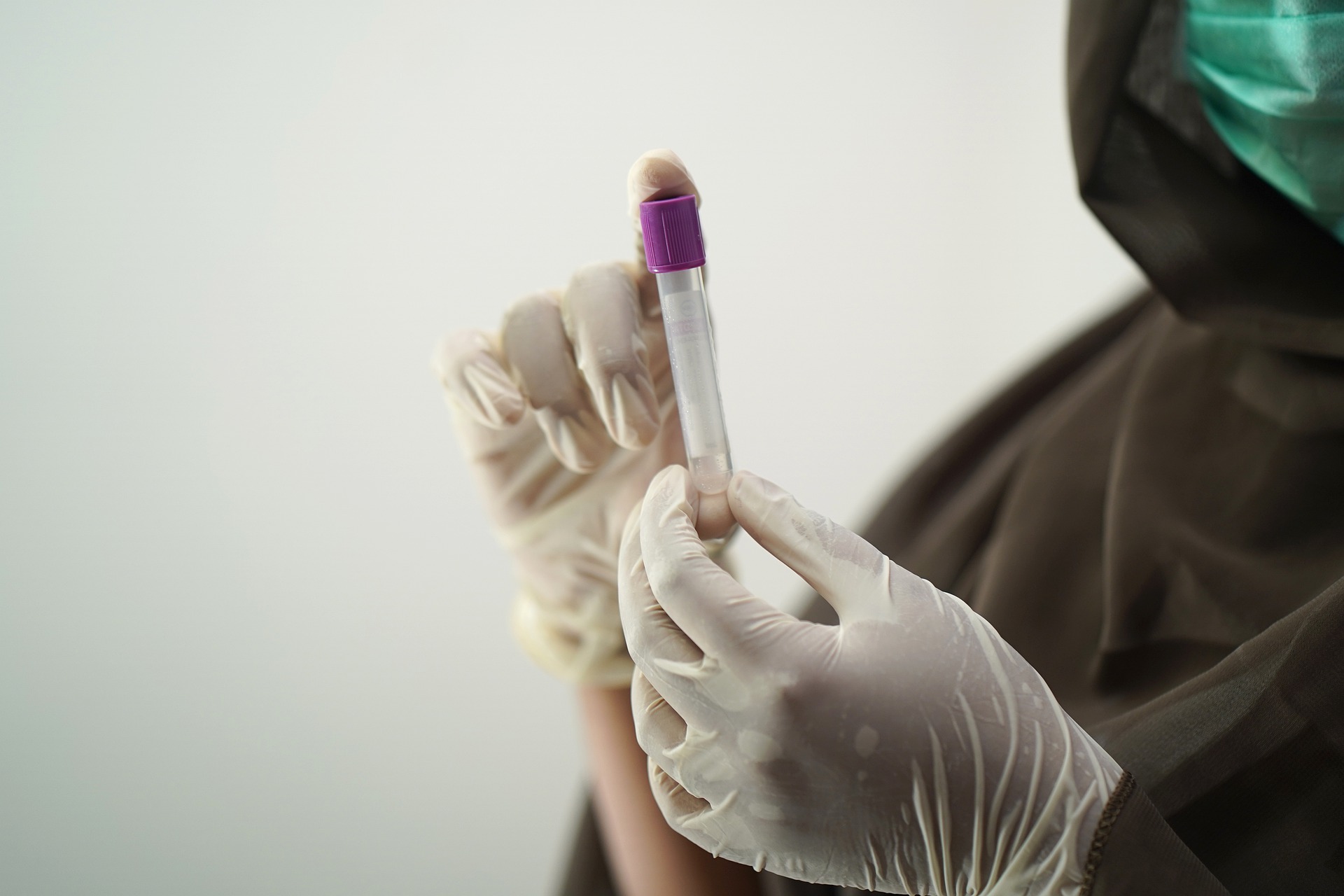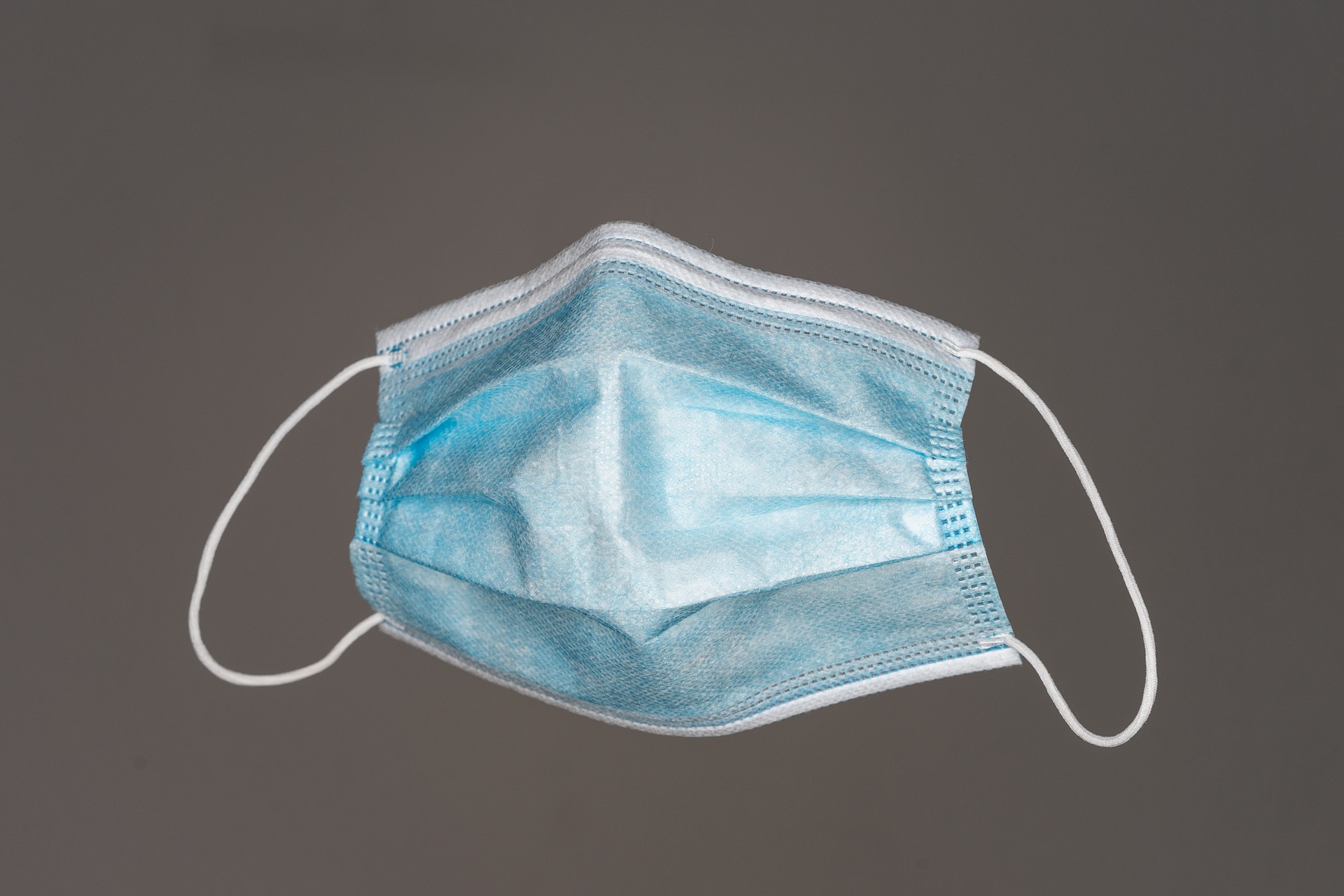Croatia Reports 139 New COVID Cases, 2 in 5 Adults Fully Vaccinated
ZAGREB, 17 July 2021 - In the last 24 hours, out of 3,834 tests performed for coronavirus, 139, that is 3.6%, have returned positive, Croatia's national COVID-19 crisis management team reported on Saturday.
There are now 723 active cases, and 112 of them are hospitalized patients, including 12 placed on ventilators.
The COVID-related death toll has increased by two to 8,236 in the last 24 hours.
Since the first registered case of the infection with this novel virus in Croatia on 25 February 2020, more than 2.2 million tests have been conducted, showing that 361,488 have caught the virus, and of them, 352,529 have recovered to date, including 99 recoveries in the last 24 hours.
Vaccine rollout: Two in five adults fully vaccinated
To date, more than 2.9 million vaccines against this infection have been administered, and 47% of the adult population have been inoculated.
Until 16 July, 1,584,407 were vaccinated, and 1,357,261 of them were fully vaccinated (1,321,943 people were double-jabbed plus 35,318 who received the single-dose Jannsen vaccine). Thus every two in five Croatians (40.32%) have fully been vaccinated.
For all you need to know about coronavirus specific to Croatia, including travel, border, and quarantine rules, as well as the locations of vaccination points and testing centers across the country, make sure to bookmark our dedicated COVID-19 section and select your preferred language.
Croatia's Coronavirus Update: 280 New Cases, 14 Deaths, 312 Recoveries
ZAGREB, 3 June 2021 - Over the past 24 hours, Croatia has registered 280 new cases of the coronavirus infection and there have been 14 related deaths, the national COVID-19 crisis management team said on Thursday.
The number of active cases today stands at 1,945. There are 653 patients in hospitals, 66 of whom are on ventilators.
Since 25 February 2020, when the first case of the infection was registered in Croatia, a total of 357,109 people have been registered as having contracted the novel coronavirus, 8,056 of them have died, and 347,108 have recovered, including 312 in the last 24 hours.
There are currently 9,603 people in self-isolation.
To date, 2,032,200 people have been tested, including 6,049 over the past 24 hours.
As of 2 June, 1,847,314 vaccine doses have been used, with 1,312,272 people receiving at least one dose, including 535,042 people who have received both doses.
For all, you need to know about coronavirus specific to Croatia, including travel, border, and quarantine rules, as well as the locations of vaccination points and testing centres across the country, make sure to bookmark our dedicated COVID-19 section and select your preferred language.
Croatia Reports 695 New Coronavirus Cases, 36 Deaths
ZAGREB, 20 May 2021 - Over the past 24 hours, Croatia has registered 695 new cases of coronavirus infection and 36 related deaths, the national COVID-19 crisis management team said on Thursday.
The number of active cases stands at 5,084. There are 1,416 COVID patients in hospitals, 148 of whom are on ventilators, and 17,490 people are in self-isolation.
To date, 1,953,059 people have been tested for the novel virus, including 7,038 in the last 24 hours.
Since 25 February 2020, when Croatia confirmed its first case of the infection, 352,692 people have been registered as having contracted coronavirus and 7,828 of them have died.
A total of 1,450,169 doses of vaccine have been administered. A total of 1,109,161 people have received one dose and 341,008 have received both doses.
For all you need to know about coronavirus specific to Croatia, including travel, border, and quarantine rules, as well as the locations of vaccination points and testing centers up and down the country, make sure to bookmark our dedicated COVID-19 section and choose your preferred language.
Croatia Reports 253 New Coronavirus Infections, 34 Deaths
ZAGREB, 10 May 2021 - In the last 24 hours, there have been 253 new coronavirus infections in Croatia and 34 people have died, the national COVID-19 crisis management team said on Monday.
Currently, there are 8,251 active cases, including 2,033 who are hospitalized, of whom 229 are on ventilators.
Since 25 February 2020, when Croatia registered its first case of this infection, a total of 344,747 people have been registered as having contracted the novel virus, and 7,503 have died.
So far, more than 1.88 million tests have been conducted.
A total of 328,993 people have recovered, including 1,589 in the last 24 hours.
There are 24,039 people in self-isolation.
By 9 May, 1,131,607 vaccine doses were administered. A total of 879,312 people have been vaccinated with at least one dose and 252,295 have received both doses.
Croatia's Coronavirus Update: 665 New Cases, 45 Deaths, 1,704 Recoveries
ZAGREB, 9 May 2021 - In the last 24 hours, of 7,060 tests performed for coronavirus in Croatia, 9.4% of them, that is 665, have turned out to be positive, the national COVID-19 crisis management team reported on Sunday.
In the last 24 hours, the COVID-related death toll has risen by 45 to 7,469.
Currently, there are 9,621 active cases of infection with this novel virus. Of them, 2,032 patients are receiving hospital treatment, including 234 patients on ventilators.
Since 25 February 2020, when Croatia registered its first case of this infection, a total of 344,494 people have been registered as having contracted coronavirus, and 327,404 have recovered, including 1,704 in the last 24 hours.
So far, more than 1.87 million tests have been conducted.
There are 26,413 people in self-isolation.
Over 1.1 million vaccine doses administered, one in four adult Croats get vaccinated
Since the start of this year, when Croatia began implementing the COVID-19 vaccine rollout plan, 1,117,709 doses have been administered. More than 867,000 people have been inoculated with at least one shot of the COVID vaccine, and over 250,000 have received both doses of the two-dose vaccine.
For all you need to know about coronavirus specific to Croatia, including travel, border, and quarantine rules, as well as the locations of vaccination points and testing centres across the country, make sure to bookmark our dedicated COVID-19 section.
Croatia's Coronavirus Update: 1,342 New Cases, 36 Deaths,1,866 Recoveries
ZAGREB, 8 May 2021 - Over the past 24 hours, 1,342 new cases of coronavirus infection have been confirmed in Croatia, and there have been 36 related deaths bringing the death toll to 7,424, the national COVID-19 crisis management team said on Saturday.
The number of active cases in Croatia today stands at 10,705. There are 2,016 COVID patients in hospitals, 235 of whom are on ventilators.
Since 25 February 2020, when Croatia registered its first case of the infection with the novel virus, a total of 343,829 people have been registered as having contracted coronavirus, and 325,700 have recovered, including 1,866 n the last 24 hours.
There are 28,152 people in self-isolation.
To date, 1,871,290 people have been tested, including 7,985 over the past 24 hours when the percentage of positive tests stood at 17%.
One in four adults vaccinated against COVID-19
Since the start of the implementation of the vaccine rollout plan at the beginning of this year, 835,320 people have been vaccinated. Of them, nearly 244,000 have received both shots of the two-dose vaccine.
The Croatian Institute of Public Health underscores that to date 25% of the adult population has received COVID vaccines.
For all you need to know about coronavirus specific to Croatia, including travel, border, and quarantine rules, as well as the locations of vaccination points and testing centres across the country, make sure to bookmark our dedicated COVID-19 section.
Croatia Reports 2,046 New Coronavirus Cases, 49 deaths
ZAGREB, 1 May, 2021 - A total of 2,046 new coronavirus cases have been registered in Croatia in the last 24 hours and 49 people have died from COVID-19, the national coronavirus response team reported on Saturday.
The number of active cases now stands at 14,276. Currently, 2,210 infected people are receiving hospital treatment, including 246 who are on ventilators, and 34,826 people are self-isolating.
Since 25 February 2020, when the first case was confirmed in the country, 334,229 people have been registered as having contracted the novel virus, of whom 7,130 have died and 312,823 have recovered, including 2,228 in the last 24 hours.
So far, 901,120 doses of COVID-19 vaccine have been administered and 702,470 people have been vaccinated, including 501,257 who have received the first shot and 198,650 who have received both shots. For 2,563 people there are no data on how many doses they received.
A fifth of adults have received at least one dose
According to data from the eCijepih platform, a fifth of the adult population in Croatia, or 20.9%, have received at least one dose of vaccine against COVID-19, which is in accordance with the vaccination plan conducted by the Croatian Public Health Institute (HZJZ).
Most of the vaccinated people are 70 years and older, of whom 54% have received at least one dose of the vaccine.
Given a large number of vaccine doses due to arrive in May and June, the HZJZ expects that at least 1,848,462 people, or 55% of the adult population, will be inoculated by July.
For more about COVID-19 in Croatia, follow TCN's dedicated page.
Miroslav Tudman, son of Franjo Tudman, has died from Coronavirus
February 1, 2021 – Miroslav Tudman, the first child of Franjo Tudman, died in Zagreb from complications caused by Coronavirus. A scientist and educator who followed a route into politics, he bore a striking resemblance to his father, the first President of Croatia
Miroslav Tudjman, HDZ member of parliament and son of Franjo Tudman, the first President of Croatia, died in the evening of Sunday 31 January 2021 in Zagreb. He was 75 years old.
Miroslav Tudjman had been hospitalized in Zagreb at the beginning of December due to complications caused by Coronavirus. He had been placed on a respirator. He sadly lost his fight for life at the Dr. Fran Mihaljevic Clinic for Infectious Diseases, Zagreb.
Born in Belgrade in 1946, the son of Franjo Tudman and his first wife Ankica Zumbar, Miroslav Tudman moved to Zagreb in 1961. He graduated from the Faculty of Philosophy at the University of Zagreb in 1970 and later became part of the faculty, founding its Institute for Information Studies in 1989. Miroslav Tudman © HDZ
Miroslav Tudman © HDZ
He took part in the Croatian War of Independence and in 1992 Miroslav Tudman became the head of the Centre for Strategic Research. He took up the role as the deputy head of the National Security Office before founding and leading the first Croatian Intelligence Agency (Hrvatska izvještajna služba, HIS). In 1998, Miroslav Tudman became a tenured professor at the Faculty of Philosophy where he had studied.
Miroslav Tudman had dallied with politics since before the war, but it was only after the passing of his father – who died while in office – that they became a more consuming affair for him. He flitted between running as an independent candidate, within fringe parties and as a member of HDZ, the party to which his father belonged. His longest duration with any party was from 2011 and 2021, during which he was a member of HDZ.
At the time of his death, he was a member of the Croatian parliament, head of the Parliamentary Delegation to the NATO Parliamentary Assembly, a member of the Committee on Defence, Internal Policy and National Security, War Veterans and Inter-Parliamentary Cooperation.
Bearing a very close resemblance to his father, Miroslav Tudman was named after Croatian writer Miroslav Krleža who his father adored at the time of his firstborn child.
Prime Minister Andrej Plenković said that he received the news of Miroslav Tudman's death with sadness.
"It is with great sadness that I received the news of the departure of Prof. Miroslav Tudman, PhD, a dear colleague, friend and member of the Croatian Parliament, son of the first Croatian President Franjo Tudman, a prominent politician and a scientist dedicated to protecting national interests," he wrote on Twitter. "In these sad and painful moments, for the Tudman family, I express my sincere condolences and sympathy, on behalf of the government and myself."
For the latest travel info, bookmark our main travel info article, which is updated daily.
Read the Croatian Travel Update in your language - now available in 24 languages
Croatian Healthcare Workers: Christmas's Forgotten Heroes?
December 28, 2020 – Amidst the difficulties of a second lockdown, a socially distanced Christmas and yet more earthquakes, have we forgotten about Croatian healthcare workers? TCN decided to interview a doctor working on the front line of the fight against COVID
During the first lockdown, it was all about the balconies. Saxophonists, DJs, opera singers – we were entertained on social media by a string of balcony-based stunts that somehow showed resilience, community spirit, humour. Zagreb was no exception. A trend of clapping on balconies in appreciation of healthcare workers passed from country to country and was picked up in Zagreb. After the applause finished, people went back inside. Nothing much had changed. It was a nice enough gesture.
Since the start of summer, no such applause has been heard. Perhaps the release from lockdown gave the signal that the lives of Croatian healthcare workers had also become much easier? That certainly wasn't the case. Though the number of people infected with COVID has grown significantly over recent weeks, Croatian healthcare workers have been treating people sick with COVID since springtime.
Croatian healthcare workers are currently busier with COVID patients than at any time before. And yet, there are no more trips out onto the balconies to show our appreciation for them. Perhaps it's now too cold outside? Perhaps some aren't aware how busy Croatian healthcare workers currently are with COVID patients? Are we perhaps guilty of taking Croatian healthcare workers for granted? Or, maybe we have simply put Croatian healthcare workers to the back of our minds as we struggle with our own challenges?
Throughout this year, TCN has been pleased to report many instances of generosity and innovation directed towards the fight against COVID. Certainly, not everyone in the country is guilty of forgetting about the Croatian healthcare workers who are on the front line fighting this disease. But, how much impact do these instances have on the general lives of Croatian healthcare workers? What is it like to no longer hear the nightly appreciation from our balconies? And, just what is life like as one of the many Croatian healthcare workers battling COVID in the year of the pandemic? TCN decided to interview one to find out.
The doctor we spoke with is a resident physician, working at a smaller community hospital in the continental part of Croatia. They agreed to speak with us on the condition that they do so anonymously.
Looking back at the first lockdown, we didn't know so much about COVID back then. We didn't know exactly how it was spread, the different manifestations of the disease, what course the disease took, nor what the recovery could be like. I think the government did a really good job of responding to the threat as they saw it. We had a small spike in cases, but that is minuscule to what we have now.
I think people generally did what they were told because they thought it would be temporary and they could see the sense in starving the disease out.
At the hospital, we were at first caught a little off guard with the amount of PPE we had and some other resources that we needed. For ICU and ventilators, we were well equipped.
Some of the residents were given some paid leave. It was important to put human resources into tiers. Croatian healthcare workers were certainly more predisposed to catching the disease, simply because they were around it every day.
After such great early successes, I was surprised that everything was relaxed later on to allow the tourist season to take place how it did, and for events like the Vukovar commemoration. It felt like it was a calculated risk. The lockdown we are now in is perhaps too little, too late. The disease is out there now, wild. The numbers of infected people are significantly higher.
The difficulty with this disease is that people can be infected and have very few or no symptoms at all. They might not know they are spreading the virus. You might not know you're sitting next to someone who has it.
Even though we're not at the centre of care for a major population area or city, we saw cases of the disease almost immediately. Our community hospital services an area containing around 150, 000 people. The first cases in April came from nursing homes – elderly, vulnerable people, many with pre-existing conditions. We were well equipped to handle it. Now, we are stretched on a daily basis. We fill the beds with sick people as soon as we empty them.
We wear masks and PPE all day, all the time. All Croatian healthcare workers in hospitals currently do this. Every patient who comes in, regardless of their symptoms, we treat them as though they are carrying the disease.
A lot of residents like me, who are working towards getting their specialty, go to do some periods of work in larger hospitals in the bigger cities. Now, many of those residents have been called back to their community hospitals – we are short on human resources.
The hospital has had to restructure itself significantly. Lots of doctors have been asked to provide cover in the emergency department. Over half of that area is now fully dedicated to COVID.
What do COVID patients look like in regards to their symptoms? It depends on their age and risk group, but you see people who look like they have flu or bacterial pneumonia, you see people who are in acute respiratory distress. Sometimes they have neurological changes, some of them look like they have had a stroke. Some people who have been infected and have supposedly got over the worst of the symptoms, come back in after a month or two with blood clotting problems – blood clots in the legs, which have a tendency to travel up to the lungs and cause a pulmonary embolism. That's a pretty big medical emergency. Some who have pre-existing heart conditions come in with a heart attack triggered by them catching COVID – it's more complicated trying to revive someone when you know they have COVID. The presentation of the disease is so variable.
It's not only older people. I've seen young people be admitted with serious reactions to COVID - young, healthy people who have no pre-existing conditions. I've seen young people come in with mild symptoms, they are sent home with antibiotics and steroids. That is the standard treatment – antibiotics to prevent a bacterial super-infection and steroids to prevent an acute reaction by the body's immune system to COVID. - that's what can cause big problems later on, in the course of the illness. But, sometimes that's not enough. I had a young patient just last week - super healthy, worked out regularly, no pre-existing conditions – and his lungs just looked awful. He had to go to the ICU immediately (sadly, this patient later died). That's like no disease I've ever seen before. Really, COVID is a completely new kind of animal.
The new strain of COVID? There is evidence that it can be spread more easily, and that it can affect more younger people, but there is no evidence that it is any more severe. The vaccines will work against it.
We're short on ventilators now. Really, we need two free ventilators at any time, in case there is an emergency admission. We are not currently in the position where we always have two free ventilators – sometimes they are all in use. That's a worry. I worked one shift where the anaesthesiologist said “We just don't have any more space for them – we will just have to put them in the hallway”. I've never seen that before.
I've heard of Croatian healthcare workers, colleagues in other hospitals getting sick with COVID and the hospital asks them to prove they got sick at work. It's pretty clear that's the most likely place they would have got sick because they're working with COVID patients. They were forced to be off work, but only on a lower level of sick pay. If you get ill because of being at work, you get full pay. But, they couldn't prove it, so they didn't get that.
I've been lucky – I haven't caught COVID yet. Well, as far as I know. My pay hasn't gone down, it's gone up – but only because I'm working so many double shifts. I volunteer to provide cover when other members of staff get sick. The specialists – the consultant doctors – they have it worse than us resident doctors. They are more responsible, so they are expected to work more hours. Nobody is pressured or threatened into picking up extra shifts, it's just something that almost all of us just do.
I've read some nice stories about fundraising efforts and donations to Croatian healthcare workers and hospitals in different parts of the country. Everything is appreciated. But, I personally haven't seen any effect of that on our day to day lives at work. Not at our hospital. Maybe there were PPE donations or cash donations, but it hasn't impacted the daily lives of me and the Croatian healthcare workers who are my colleagues. I think I heard that a local garage was giving free cups of coffee if you show your medical ID. Every little is appreciated.
For me and the Croatian healthcare workers who are my colleagues, instead of any kind of personal discounts or donations to staff, we would much prefer if people just took this disease more seriously. Things look very different when you work in a hospital compared to someone outside who maybe doesn't know anyone who got sick.
I came off a particularly difficult double shift a couple of months ago – it was just non-stop COVID admissions, some severe cases. As I was walking home, I walked past a bar that's near to the hospital. They had signs on the walls telling people to keep their distance. But, the bar was absolutely packed – full of young people. It just felt so disappointing. I couldn't help but think of the older relatives they would come in contact with, some who might get really sick.
Instead of people clapping on balconies, I think Croatian healthcare workers would just prefer more general vigilance and personal responsibility – wear your mask, wash your hands regularly, no more parties in the basement. Clapping on balconies is a nice gesture, but ultimately it's an empty one.
How does it feel to know that there are some people out there, in every country, all around the world, who believe COVID is a hoax, or a plot, or not so serious, or that the vaccine is dangerous or something other than what it is?
Well, it's not always the content of the conspiracy theory that appeals to these people as much as it is their inability to accept facts – the truth – because they have little faith in the authorities that are telling them this. Here in Croatia, I think that distrust is quite high – a lot of people are disillusioned with the state and politics, because of corruption. Sometimes over 50% of the population choose not to vote. The dissemination of misinformation over social media doesn't help - if that's where people get their news from. If you look at that example from your own country, where strict measures about movement were put in place by your government, and immediately afterward, the Chief Advisor to the Prime Minister, was caught breaking them to travel across the country with his family to a second home in the countryside, going out on day trips. And he was defended by his colleagues after he was found out! When people see those kinds of things happening, the distrust between people and the authorities just grows.
All of the images in this article are used as illustrations only. None of the places or people depicted are in Croatia or Croatian, except for the first image, a panorama of Zagreb
ECDC: Croatia Has Most Active COVID-19 Cases per 100,000 Inhabitants in Europe
ZAGREB, Dec 12, 2020 - In the past two weeks Croatia has had the largest number of active coronavirus cases per 100,000 inhabitants of all European countries, show data from the European Centre for Disease Prevention and Control (ECDC), published on Saturday.
Croatia fares worst among 31 European countries, with 1,194.3 active cases of the disease per 100,000 inhabitants in the past 14 days.
It is followed by Lithuania, with 1,146.7 cases and Luxembourg, with 1,097.7 cases.
As for the mortality rate, Croatia is fourth, with a rate of 21.7.
Bulgaria, Slovenia and Hungary are the only other European countries that have had more fatalities per 100,000 inhabitants in the last two weeks, according to ECDC data.
A total of 14,824,355 cases of COVID-19 have been confirmed in 31 European countries so far, and 369,840 patients have died.
In the last 24 hours Croatia has had 4,135 cases of coronavirus infection and 78 related fatalities, the national COVID-19 response team said on Saturday.


